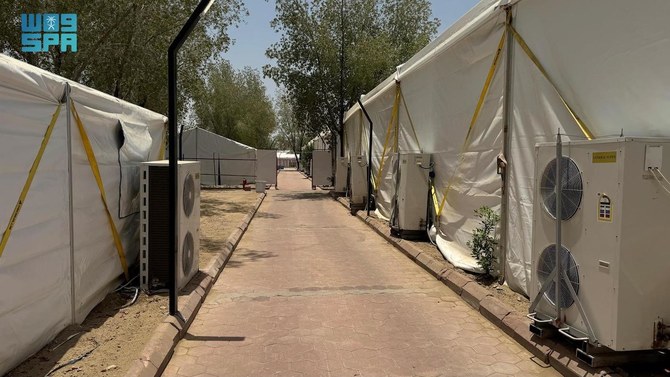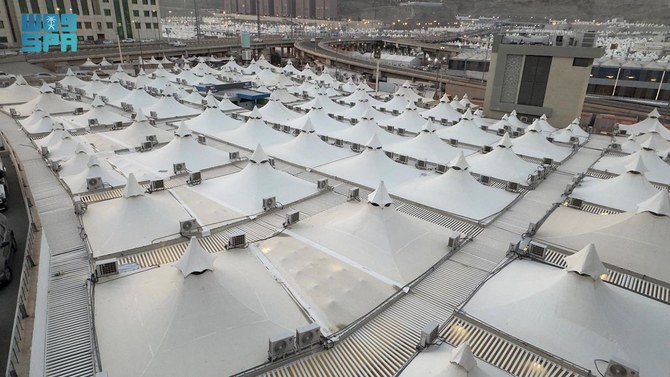RIYADH: Efforts are underway to prepare holy sites for this year’s Hajj season. Camps are fully equipped to cater to pilgrims’ needs, ensuring comfortable and peaceful rituals.
Public and private sectors are collaborating with comprehensive operational plans to enhance services for pilgrims, as directed by the leadership, the Saudi Press Agency reported.
Makkah Municipality has made extensive preparations, including supervising roads, lighting, sidewalks and public facilities for safe and optimal use.
Engineers and technical teams conducted thorough tests on road routes to ensure quality. The municipality also maintained 4,767 light poles and towers at the holy sites.
A total of 123 bridges in Makkah and 20 in other holy sites have undergone maintenance, while 58 tunnels (48 for vehicles and 10 for pedestrians) spanning 34 km have been completed.
To enhance services, strategically positioned service centers at all holy sites have been equipped with additional resources and staff.
Tawaf companies have prepared field centers and established modern camps that meet international standards. These are insulated, fire-resistant and equipped with cooling systems in each tent for pilgrims’ comfort. Safety measures, support services and high-quality meals are also provided.
Efforts are underway to ensure efficient public transport at the holy sites. Tawaf companies are testing roads and bus routes to adhere to transportation plans and schedules set by The General Syndicate of Cars in Makkah.
The Roads General Authority, along with other relevant agencies, is expanding its cooling asphalt experiment at the holy sites. This aims to lower temperatures in residential areas, reduce energy consumption and create a more comfortable environment in waiting and gathering areas.
The Makkah branch of the Ministry of Environment, Water and Agriculture is inspecting slaughterhouses to ensure compliance with health regulations for the upcoming Hajj season.
Comprehensive operational plans, including workforce deployment, slaughter scheduling and waste disposal monitoring are in place and being implemented. Dedicated teams will oversee equipment use and waste disposal.
The ministry is intensifying supervision of slaughterhouses and livestock pens, emphasizing adherence to health regulations to ensure a safe environment for pilgrims and prevent hazardous practices for the environment.
Under the supervision of the Ministry of Health, the Makkah Health Cluster has confirmed its readiness for Hajj. Operational plans for 18 hospitals and 126 health centers in Makkah and the holy sites have been completed to provide high-quality medical services.
Ajyad Emergency Hospital is open round the clock at the Grand Mosque and there are three other emergency centers. Al-Haram Hospital is also operational in the northern courtyards of the Grand Mosque.
All necessary training and resources have been provided to ensure the continuity of outpatient clinic services across facilities, with 3,944 beds allocated, including 654 for intensive care.
The Makkah Health Cluster also highlighted the readiness of 155 operational ambulances for the Hajj season, along with additional support for Nimra Hospital and ambulance teams distributed across various sites and hospitals.





























